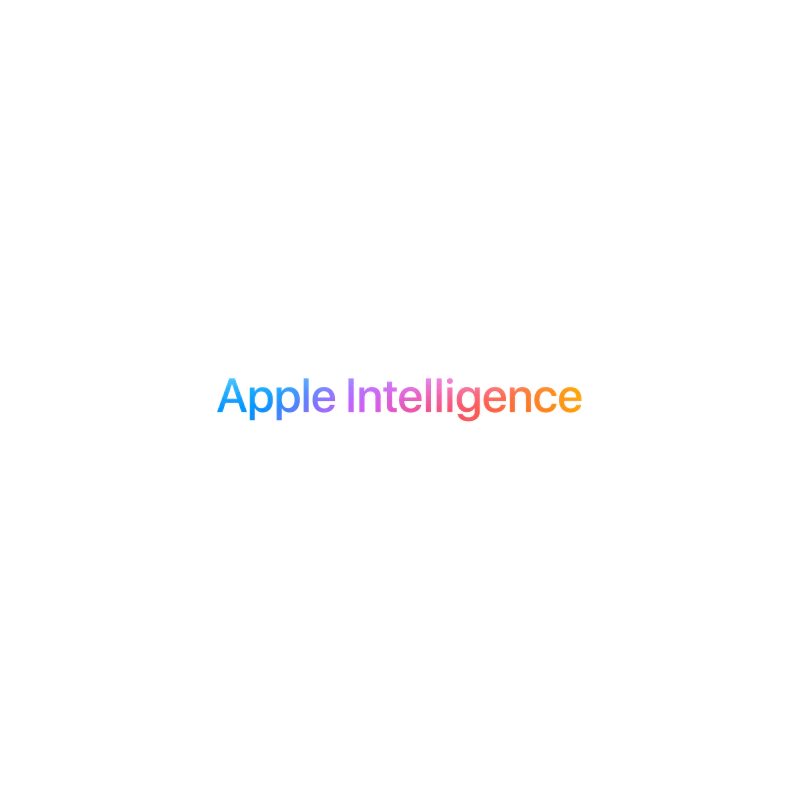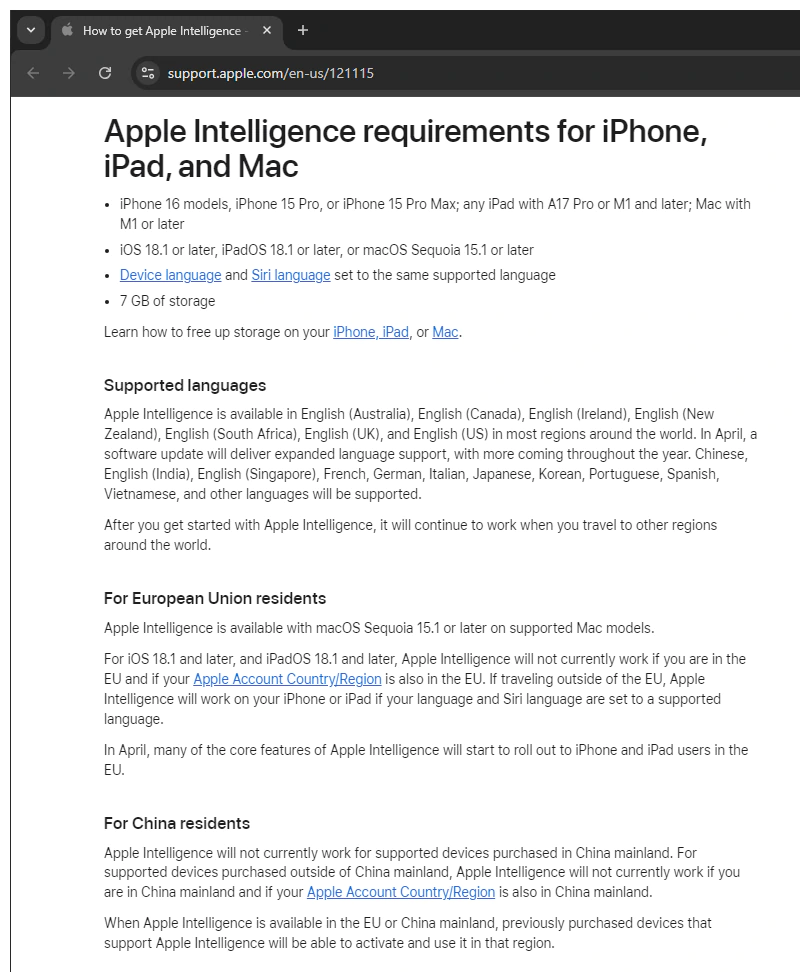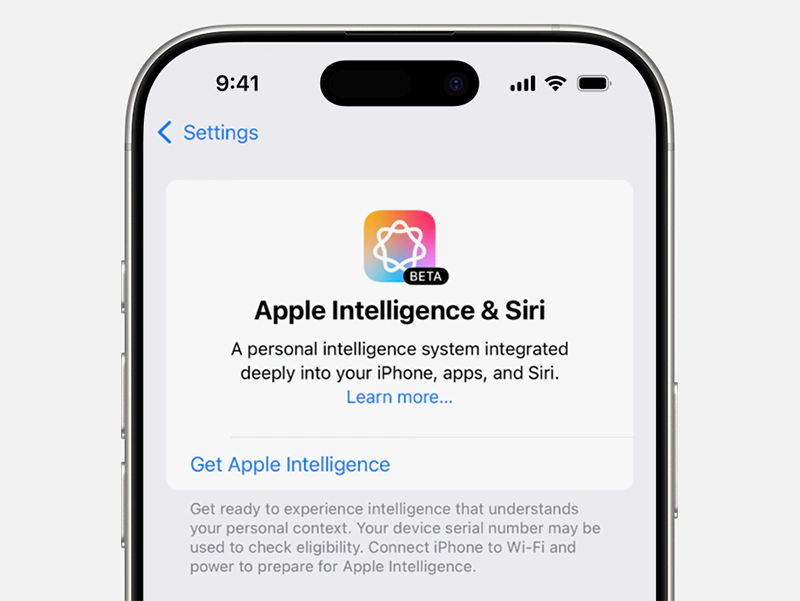
Apple had been incorporating AI into its devices for years, but it never fully embraced the trend.
While other tech giants were racing to develop generative AI—spurred by OpenAI's release of ChatGPT—Apple lagged behind. As competitors advanced rapidly with Large Language Model AI products, Apple continued to rely on Siri.
In today's AI-powered ecosystem, the voice assistant is now considered a relic, knowing how less it can do if compared to LLM-powered chatbots.
However, that changed when Apple finally revealed its long-anticipated AI strategy.
At the 2024 Worldwide Developers Conference (WWDC), Apple introduced Apple Intelligence technology, which marked a significant upgrade across its suite of apps, enhancing not only Siri but much more.
During the nearly two-hour presentation, Apple executives, including CEO Tim Cook, showcased how Siri could now interact seamlessly with messages, emails, calendars, and even third-party apps. Siri also gained the ability to write emails and adjust the tone to fit different contexts.
And thanks to its integration with ChatGPT, the AI assistant is now as smart as ever.

Apple Intelligence arrived on compatible iPhones, iPads, and Macs through a staggered rollout, and this is when people began to realize how massive its requirement is.
The AI and all its glory, was fully launched in iOS 18.1. At the time, it required 4GB of available iPhone storage space.
That is a hefty storage space for just an AI that not everyone would use.
And this time, in iOS 18.2, Apple stated on a webpage on its website, that it now requires 7GB of free storage per device, and that same storage requirement applies whether users are using an iPhone, iPad, or Mac.
What this means, Apple Intelligence now requires almost a double of what it was in iOS 18.1.
This huge bump in requirement may create a lot of questions when it fact, it makes a lot of sense.
One of which, is because the privacy features Apple Intelligence is trying to offer.
Apple has said in the past that Apple Intelligence requires a lot of resources, and that it can only run on Apple devices that are powered by at least an A17 Pro processor, or M-series chip.
So it makes sense that what Apple means by "computationally expensive" isn't limited to just computing power, but also storage space.
In other words, in order for Apple Intelligence to work at a more optimum performance, and without the necessity of an internet connection, it needs to utilize its hardware to the fullest.

Not to mention that through iOS 18.2, Apple introduced a list of big new AI features, including:
- Genmoji: Allowing users to create their own custom emoji for use in any app.
- ChatGPT in Siri: A Feature that allows Siri to tap into ChatGPT’s knowledge.
- Image Playground: Create original AI images in animation or illustration styles.
- Visual intelligence: Use an iPhone Camera Control to get relevant info from their physical environment.
- Image Wand: Turn sketches or notes into illustrations in the Notes app.
- Compose with ChatGPT: OpenAI’s assistant can help users draft original text from scratch inside any app.
- Custom rewrites: Apple’s writing tools let users "Describe your change" for custom AI rewrites.
- Language expansion: Localized English support in Australia, Canada, New Zealand, South Africa, and the UK.
As more Apple Intelligence features continue arriving, on-device storage is going to become more in-demand than ever before. So this should be considered surprising.
The thing is though, many started hoping that Apple intelligence should be an optional feature, not something that is forced upon users.
As users have pointed out, the high processing power required by Apple Intelligence is draining iPhone batteries quite rapidly. To those users who don't use Apple Intelligence, or those who aren't benefiting from the AI, is seeing this as a burden.
Because downgrading is not possible, some users said that iOS 18 with Apple Intelligence is the worst iOS version yet.
